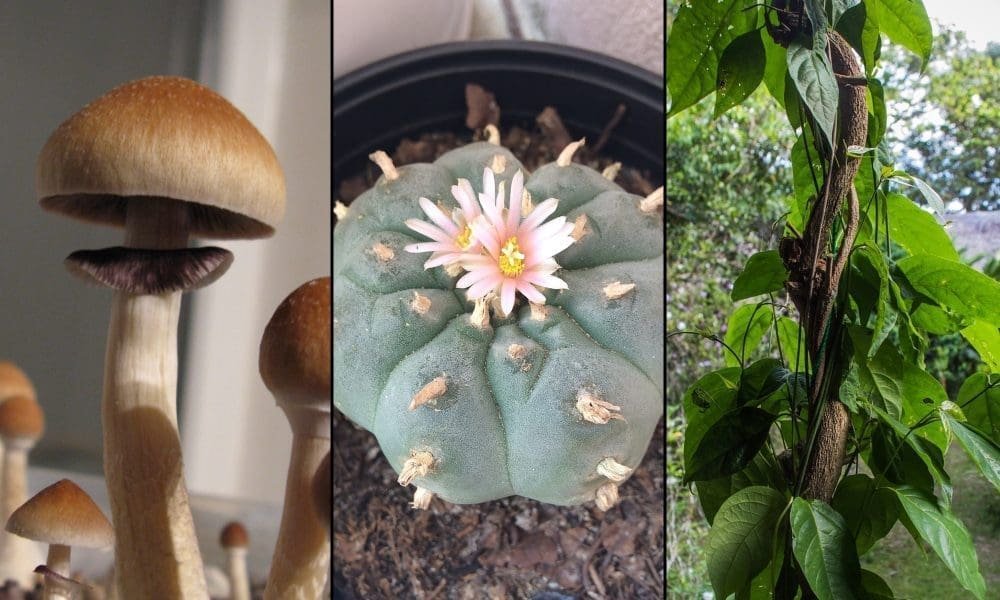Head of U.S. Department of Veterans Affairs says that he is “particularly proud of” the work of the Administration to promote psychedelics research. Citing studies on substances such as MDMA, which show early promising results for treating mental disorders that are common among the veteran population.
He said in a video clip that VA Secretary Doug Collins posted on X, Thursday morning, the department is “doing some of the most specific and best research work.”
According to him, while it’s true that there have been reports of research contracts cancelled by the Trump administration in recent years, this shouldn’t be taken too seriously because VA funded studies often follow a “rotational” basis and that others are being financed “through alternative means or through other assets”.
Collins added, “We would like to continue all our activities.” Collins said, “I’m particularly proud of our research on the psychedelic question.”
The secretary noted that he recently visited a VA facility in New York City “discussing MDMA therapies, which have been phenomenal in working with those with [post-traumatic stress disorder] and traumatic brain injuries—these other issues that we have.”
“I’m sure there are more.” “There are 11 to 12 at the VA,” said he. “So that’s the things that I see: Research being able to provide not only help for veterans today, but also encouraging us to find not only things that will help veterans of the future—but also that will be helpful to the general public as well.”
Collins declared, “Education is the key to our success.” The more we learn, the better we will be. “I want that to continue in the VA.”
Collins’ visit to the research center for psychedelics came a few months after the VA Secretary met with an army veteran, who has become a proponent of access to psilocybin to discuss its therapeutic potential for veterans.
Collins also briefly raised the issue in a Cabinet meeting with President Donald Trump in April.
The secretary also disclosed in April that he had an “eye-opening” talk with U.S. Department of Health and Human Services (HHS) Secretary Robert F. Kennedy Jr. about the therapeutic potential of psychedelic medicine. Collins has said that, when Congress is considering access to psychedelic medicine for veterans outside VA services, he would be open to vouchers from the government covering the cost of the therapy.
Kennedy announced last month his commitment to expand research on psychedelic therapies and that he, along with the FDA’s head, aims to make such substances available to veterans legally “within the next 12 months.”
During a recent Senate committee hearing, Collins separately reiterated his commitment to exploring the efficacy of psychedelic therapy to address serious mental health conditions that commonly afflict military veterans.
In May, bipartisan lawmakers in Congress requested that the VA director meet with them and discuss possible ways of providing access to psychedelic medication for veterans.
In a letter sent to Collins, Reps. Lou Correa (D-CA) and Jack Bergman (R-MI)—co-chairs of the Congressional Psychedelic Advancing Therapies (PATH) Caucus—said they were “encouraged by your recent remarks about the importance of pursuing research into psychedelic treatments and other alternative treatments to improve Veterans’ care.”
Correa and Bergman separately introduced a bill in April to provide $30 million in funding annually to establish psychedelics-focused “centers for excellence” at VA facilities, where veterans could receive novel treatment involving substances like psilocybin, MDMA and ibogaine.
Bergman has also expressed optimism about the prospects of advancing psychedelics reform under Trump, arguing that the administration’s efforts to cut spending and the federal workforce will give agencies “spines” to tackle such complex issues.
—
MEDCAN24 tracks hundreds of marijuana, psychedelics, and drug policy legislation in state legislatures this year. Patreon subscribers who donate at least $25/month have access to the interactive maps and charts as well as our hearing calendar.
Find out more about our marijuana law tracker. To gain access, become a Patreon supporter.
—
In December, VA separately announced that it’s providing $1.5 million in funding to study the efficacy of MDMA-assisted therapy for veterans with PTSD and alcohol use disorder (AUD).
Last year, VA’s Yehuda also touted an initial study the agency funded that produced “stunning and robust results” from its first-ever clinical trial into MDMA therapy.
Shereef Enahal, a former VA Assistant Secretary of Health who left the VA in 2011, said “it was very encouraging” to hear that Trump chose Kennedy to head HHS and that he supported reforms on psychedelics. And he hoped to work with him on the issue if he stayed on for the next administration, but that didn’t pan out.
Images courtesy carlosemmaskype & Apollo.





